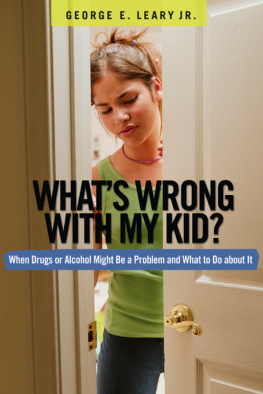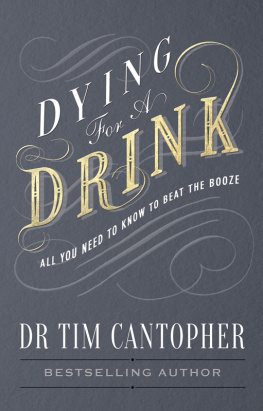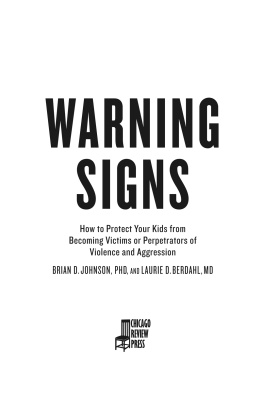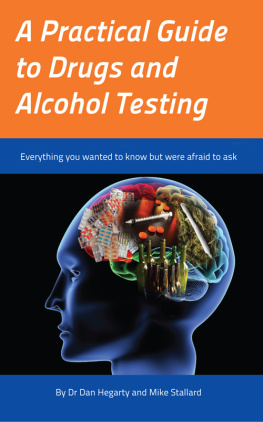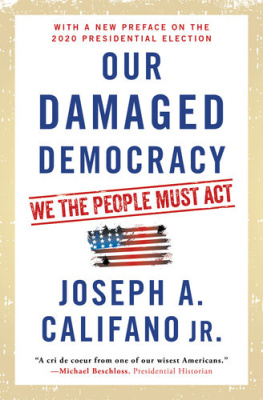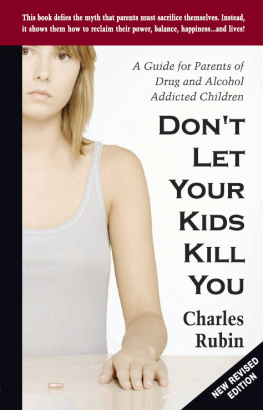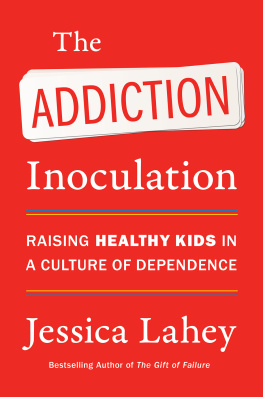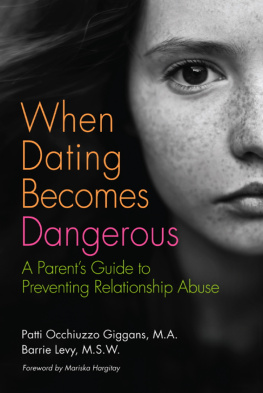WHATS WRONG
WITH MY KID?
WHATS WRONG
WITH MY KID?
When Drugs or Alcohol Might Be a Problem
and What to Do about It
George E. Leary Jr.

Hazelden Publishing
Center City, Minnesota 55012
800-328-9000
hazelden.org/bookstore
2012 by George E. Leary Jr.
All rights reserved. Electronic edition published 2012
Produced in the United States of America
No part of this electronic publication may be copied, sold, or redistributed in any form or by any means without written permission from the publisher. Failure to comply with these terms may expose you to legal action and damages for copyright infringement.
ISBN: 978-1-61649-119-2
Library of Congress Cataloging-in-Publication Data
Leary, George E., 1943
Whats wrong with my kid? : when drugs or alcohol might be a problem and what to do about it / George E. Leary, Jr.
p. cm.
Includes bibliographical references.
ISBN 978-1-61649-119-2 (softcover)
ISBN 978-1-61649-430-8 (ebook)
1. YouthSubstance use. 2. YouthDrug use. 3. YouthAlcohol use. 4. Substance abuseTreatment. 5. Drug abuseTreatment. I. Title.
HV4999.Y68L43 2012
649.48dc23
2012004295
Editors note
The names, details, and circumstances may have been changed to protect the privacy of those mentioned in this publication.
This publication is not intended as a substitute for the advice of health care professionals.
Alcoholics Anonymous and AA are registered trademarks of Alcoholics Anonymous World Services, Inc.
Hazelden offers a variety of information on chemical dependency and related areas. The views and interpretations expressed herein are those of the author and are neither endorsed nor approved by AA or any Twelve Step organization.
This book is for educational and informational purposes only and should not be considered, or used as a substitute for, professional medical/psychological advice, diagnosis, and treatment. Hazelden makes no warranty, guarantee, or promise, express or implied, regarding the effectiveness of this book in the prevention of suicide in specific situations. Hazelden does not take responsibility for any loss, injury, or damage caused by using the book information and in no event shall Hazelden, its employees, or its contractors or agents be liable for any special indirect or consequential damages or any loss or damages whatsoever resulting from injury, loss of income or profits, whether in an action of contract, negligence, or other tortious action, arising in connection with the use or performance of any information contained in the book or associated materials.
In , the information on family roles draws from Sharon Wegscheider-Cruses Another Chance: Hope and Health for the Alcoholic Family (Palo Alto: Science and Behavioral Books, 1981).
To Ondria, my wife of more than four decades,
my sons, and grandchildren, Kobi, Elizabeth, Jaiden;
the joys of my life.
ACKNOWLEDGMENTS

T his book is the result of the help and support of many people, with special mention to my wonderful and gracious wife, who not only gave me the time and space to write, but was my main support throughout. Special thanks to Dr. Rhonda L. Allen, who not only mentored me as I learned the ins and outs of working in the addiction field under her tutelage, but provided personal support to me and my family when drugs assailed us. I would not be who I am without you in my life. To Michael Johnson, M.D., and Deborah Rawlings, I extend my deepest appreciation for not only reading the manuscript but also motivating me to finish the work. I also thank Janice Stevenson, Ph.D., who became my cheerleader, encouraging me and validating my work. I am appreciative to James McCollum Jr. for his advice and support, as well as Peter Schletty, who guided me and this work from initial submission to final product. Finally, I acknowledge my accomplished and supportive sons, George and Mark. You two are the greatest sons a father could ever want.
INTRODUCTION

W hats wrong with my kid? How can I find out whats happening? What can I do as a parent? These questions are all too often asked by mothers and fathers as they watch a son or daughter plummet out of control. Searching for answers, Mom and Dad often look at their young persons peers and possible school issues, but a valid explanation remains evasive. Despite a trail of therapists, doctors, and counselors, the troubling self-destructive behaviors continue and intensify. Parents are caught between introspection and self-deception as they ignore or refuse to consider the possibility that their young person is using brain-altering substances. All too often, substance abuse is the reason for these disturbing behaviors, but parents fail to acknowledge it because they lack awareness of the criteria to determine its existence, or are terrified of what it might mean for them and their family. Unaware or unwilling to acknowledge the signs and symptoms of substance abuse, Mom and Dad continue in their quandary.
The extent of substance abuse among teens is exemplified by the 2010 Monitoring the Future survey, which was sponsored by the National Institute on Drug Abuse (NIDA) and covers illicit substance abuse during the year 2010:
- Daily marijuana use increased among 8th, 10th, and 12th graders from 2009 to 2010. Among 12th graders it was at its highest point since the early 1980s at 6.1%. [In 2010,] perceived risk of regular marijuana use also declined among 10th and 12th graders, suggesting future trends in use may continue upward.
- In addition, most measures of marijuana use increased among 8th graders between 2009 and 2010 (past year, past month, and daily), paralleling softening attitudes for the last 2 years about the risk of using marijuana.
- After marijuana, prescription and over-the-counter medications account for most of the top drugs abused by 12th graders in the past year. Among 12th graders, past-year nonmedical use of Vicodin decreased from 9.7% to 8%. However, past-year nonmedical use of OxyContin remains unchanged across the three grades and has increased in 10th graders over the past 5 years [2005 to 2010]. Moreover, past-year nonmedical use of Adderall and over-the-counter cough and cold medicines among 12th graders remains high at 6.5% and 6.6%, respectively.
- After several years of decline, current and past-year use of Ecstasy [or MDMA] has risen among 8th and 10th graders. From 2009 to 2010, lifetime use of Ecstasy among 8th graders increased from 2.2% to 3.3%, past-year use from 1.3% to 2.4%, and current use [from] 0.6% to 1.1%. This follows declines in perceived risk associated with MDMA use seen over the past several years.
- Alcohol use has continued to decline among high school seniors with past-month use falling from 43.5% to 41.2% and alcohol binge drinking (defined as five or more drinks in a row in the past two weeks) declining from 25.2% to 23.2%.
The survey also found that in 2010, 71 percent of high school seniors were illegally drinking alcohol and nearly half of all seniors were using illicit substances. This is undeniably a national problem that affects the majority of U.S. households. The illicit use of these substances is fostered by a widespread plague of parental ignorance about addiction as well as a troubling poor awareness of the telltale signs of substance abuse. This parental unawareness allows drug and alcohol abuse to evolve into dependency upon brain-altering substances.

